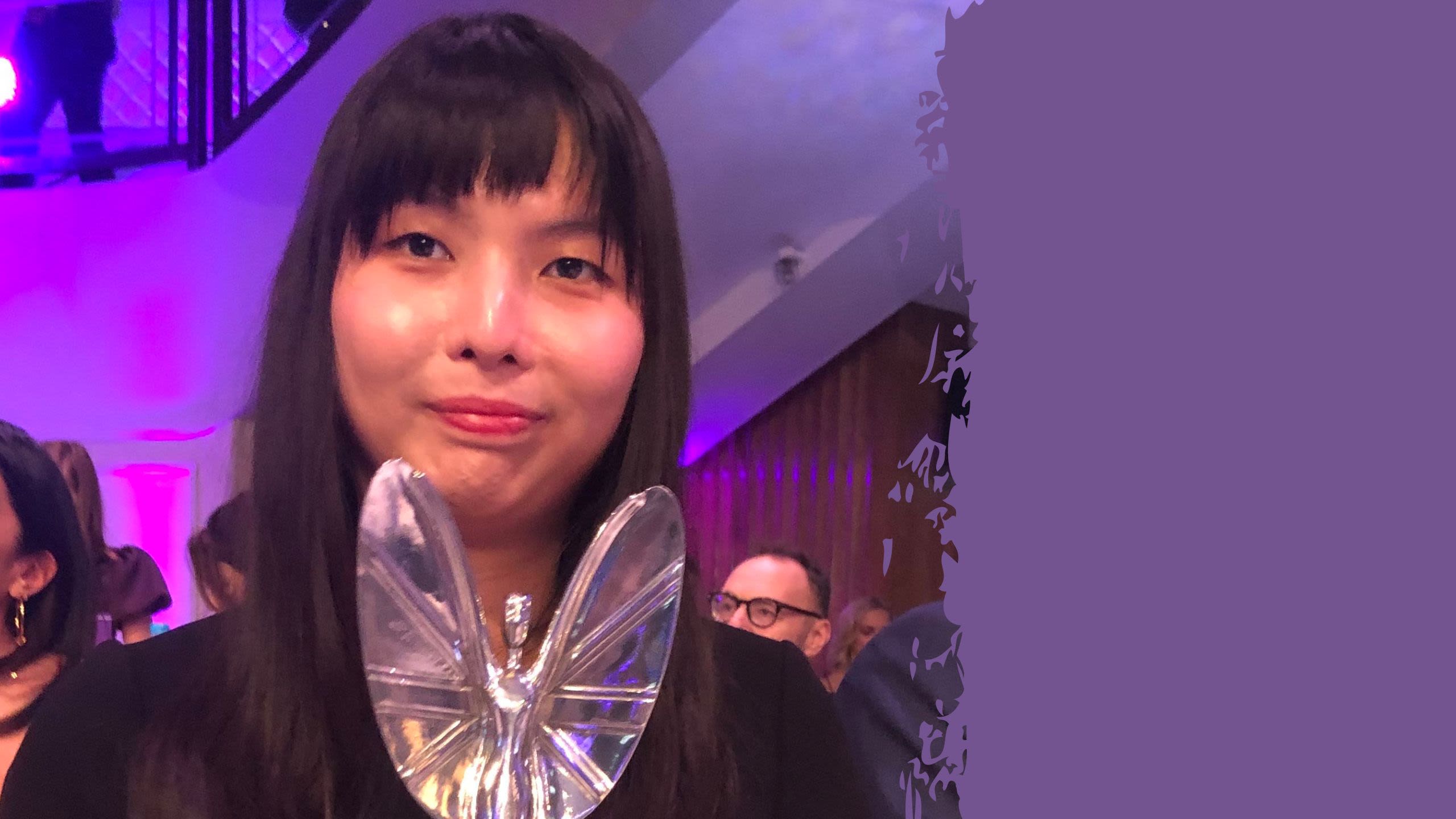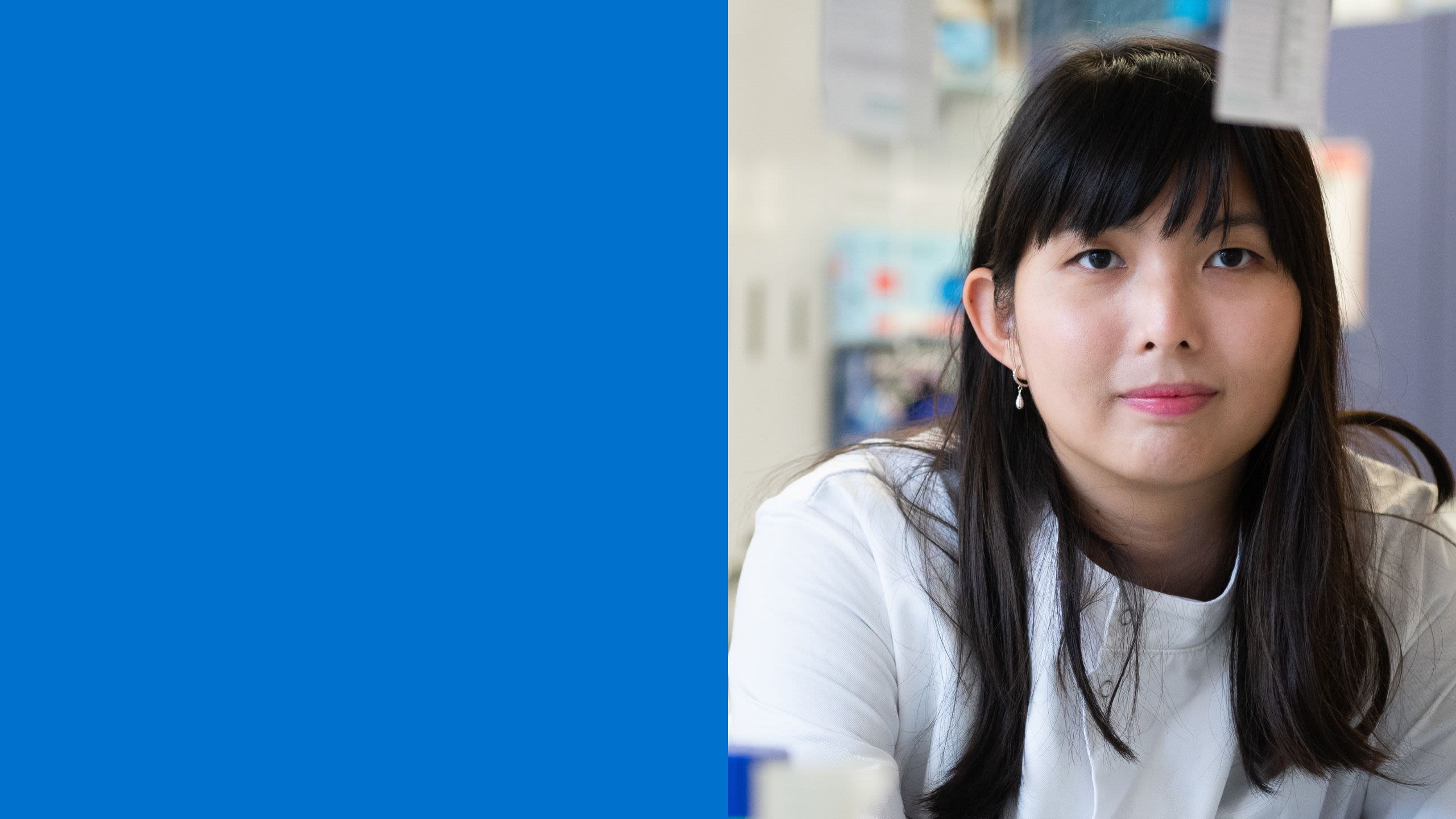In the Spotlight
Thank-yous, fake news and the media

The eyes of the world are watching
From the earliest days of the global pandemic in 2020, healthcare workers, clinical researchers and vaccine scientists all worked under tremendous pressure to fight the novel coronavirus.
And for many of the Oxford team, this was the first time they had experienced media attention.
So at a time when they only wanted to focus on the vaccine, scientists had to cope with an additional workload of media interviews, the pressures of fame — and the sting of criticism.
But the media attention also meant more public interest the work scientists do, and highlighted the important of STEM (Science, Technology, Engineering and Maths) in our daily lives.
These are the stories of Oxford scientists on pandemic the frontline — in the laboratory and the media spotlight.
Making Science the Hero
Professor Dame Sarah Gilbert
Saïd Professor of Vaccinology

Professor Dame Sarah Gilbert became a household name as the Project Leader for the Oxford vaccine.
Though not entirely comfortable in the limelight, she understands the benefits of working with the media.
In many of her interviews, she urges the public to examine the data on vaccine risks and benefits.
She also wants to raise the profile of science as a career, particularly among girls.
Sarah was one of six Women in STEM named a ‘Barbie Role Model’ in 2021.
She received this one-of-a-kind doll in honour of her work.
Sarah hopes the doll will encourage children to imagine future careers in science and medicine.
"I’m not a woman scientist, I’m a scientist."

"More than half my colleagues are women — and we do the job.
“I’m not a woman scientist, I’m a scientist.
"I am passionate about inspiring the next generation of girls into STEM careers.
"I hope that children who see my Barbie will realise how vital careers in science are to help the world around us.”
Professor Dame Sarah Gilbert, Saïd Professor of Vaccinology

The needs of the many
Professor Catherine Green
Head of Vaccine Production, Clinical Biomanufacturing Facility

Before the pandemic, Professor Catherine Green was respected in her field, but hardly a public figure.
But her work on vaccine production at Oxford’s Clinical Biomanufacturing Facility has thrown her into the spotlight.
In 2021, she was made an Officer of the Order of the British Empire (OBE).
In 2022, she even received an invitation to the Royal Box at Wimbledon.
"Sometimes ... we would give anything just to return to our previous, unobserved lives"

“We have sometimes felt the media attention was too much, and that we would give anything just to return to our previous, unobserved lives.
"But stepping back, I think that even if us putting ourselves out there for examination has increased the understanding of just a small number of people, it will have been worth it.
“During the first lockdown, baking became quite a focus for me as a way to stay sane.
"My family’s weekly Zoom baking sessions ... really helped me to get through.”
Professor Catherine Green, Head of Vaccine Production, Clinical Biomanufacturing Facility

Pride under pressure
Dr Carina Joe
Senior Postdoctoral Research Scientist in Vaccine Development

Dr Carina Joe and her colleagues were tasked with making as much vaccine as quickly as possible, maximising the number of lives saved.
As part of the vaccine team, she was honoured with a 2021 Pride of Britain Award.
She has received recognition in the UK and in Indonesia.
"Sometimes ... I would think 'Why me?'"

“Sometimes I would feel I couldn’t do it anymore.
"I would think
‘Why me?
'Most of the rest of the world is at home, but I am here every day, working so many hours.
'No-one knows I am here every day doing what I do.'"
Dr Carina Joe, Senior Postdoctoral Research Scientist in Vaccine Development

Saying thank you
Dr Sean Elias
Postdoctoral Scientist & Public Engagement with Research Leader

As they moved forward with the vaccine, the team received thanks from the public — the people they were working so hard to protect.
Hand-written notes like these helped the scientists keep going with their difficult and stressful work.
"I made the effort to reply to as many as possible"

“Both before — and particularly after — the vaccine was licensed, we started receiving a regular stream of thank-you letters and cards.
"These were displayed on a board at the entrance to the labs.
"Everyone enjoyed reading them — especially the ones from children.
"I made the effort to reply to as many letters from children as possible.”
Dr Sean Elias, Postdoctoral Scientist & Public Engagement with Research Leader

Fake news
Professor Sir Andrew Pollard
Director of the Oxford Vaccine Group

"I didn’t expect ... to be facing fake news that our first trial volunteer had died"

“I didn’t expect ... to be facing fake news that our first trial volunteer had died — which, of course, she hadn’t.
"And as the person responsible for all the participants in the trial, my thought was, obviously, for this individual and how she must be feeling, her family — some of whom wouldn’t even know whether it was true — and her colleagues at work.
"But then, of course, there's the impact it has on the other people in the trial — and confidence in vaccines in general.
"I talked directly to the BBC and said,
'I need some help because the implications of not dealing with this quickly are just awful for the world.'
"And they immediately contacted the participant.
"They tweeted an interview of her and it went on the BBC News website.
"And it was immediately all round the world that it was fake news. ”
Professor Sir Andrew Pollard, Director of the Oxford Vaccine Group

Science and scientists have been in the media more than ever during the pandemic.
They have been portrayed as heroes — and used as scapegoats.
And some have become household names.
While trust in governments is falling, trust in science has increased.
Have your views about science and scientists changed?

